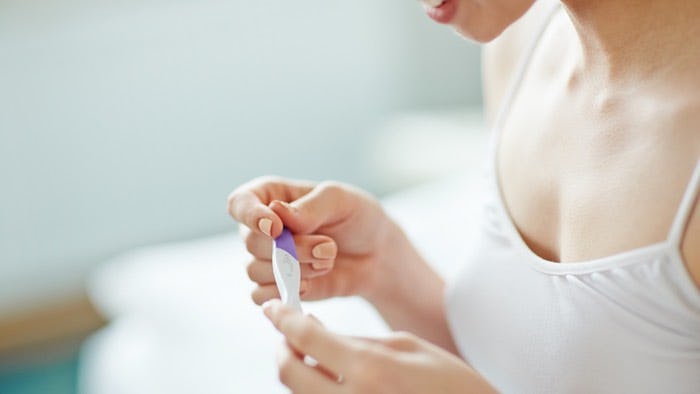Life

How Soon After Ovulation Can You Take A Pregnancy Test?
When you are trying to conceive, you go through the same ritual every month. You chart your ovulation, get it on accordingly, and then anxiously wait to take a pregnancy test. If you know when you've ovulated, you might want to know, "how soon after ovulation can I take a pregnancy test?"
Ovulation, when a mature egg is released by an ovary into the fallopian tube and waits to be fertilized by sperm, is when you are most fertile and when you have the highest chances of getting pregnant, according to the American Pregnancy Association (APA). If the egg is fertilized, it can take six to 12 days after ovulation to implant itself into the uterine lining, which is when your pregnancy officially begins, and your body begins producing the hormone human chorionic gonadotropin (hCG).
According to the Mayo Clinic Health Library, pregnancy tests are designed to detect levels of hCG in your blood or urine, and some tests are more sensitive than others, but the earlier you test, the harder it can be for the tests to detect the pregnancy hormone. The Mayo Clinic Health Library further noted that because the timing of ovulation is different for every woman every month, and because the timing of implantation of the fertilized egg can vary, waiting for the day or week after you miss your period is the best time to test. (Especially if you aren't tracking ovulation with ovulation tests or charting.)
Early pregnancy tests, however, claim to be able to detect the hCG hormone in urine about six days before your period, which is about a week after ovulation if you have an average cycle. But the accuracy of the results is only 79 percent, as mentioned by Clearblue, and as time passes and your hCG levels rise, the detection will get more accurate.
Waiting is annoying, but it's best to test around 12 days after ovulation. (Not sure of when you ovulated? Wait until the first day of your missed period.) If you can hold out even longer, you should — the longer you wait to test, the more accurate the results will be. Hopefully, you'll get the news you were waiting for.